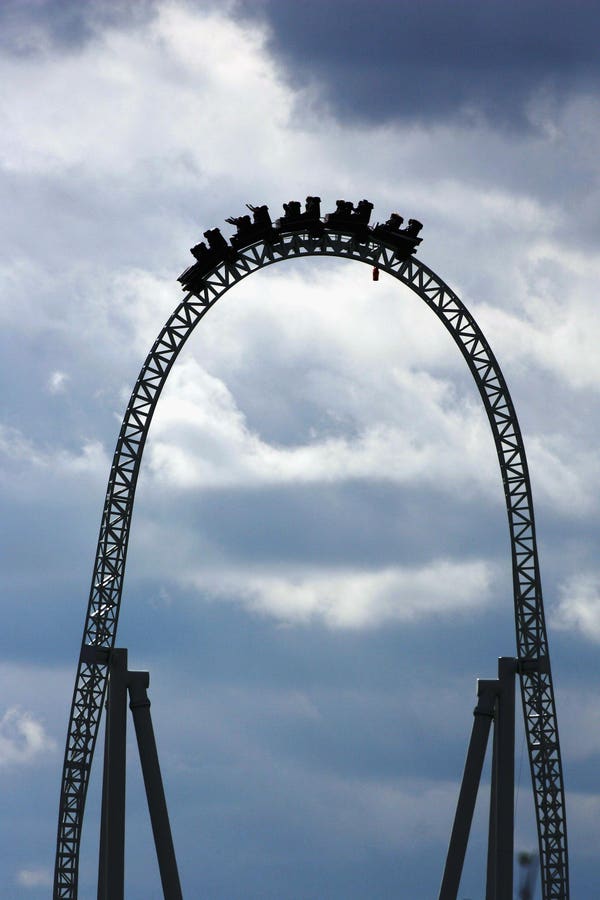The Trump Media anti-short selling campaign has unwittingly played into short sellers’ hands. After short sellers “covered” their shorts (i.e., bought shares) in the $20s, they have been biding their time, waiting for false claims of victory. It looks like that time is here, and the short sellers are stepping in again.
An apparent, perfectly-timed contrarian indicator: Barron’s (May 1, 6:16 AM): “DJT Stock Is Still Climbing. Trump Media’s Short Selling Campaign May Be Working”
Trump Media’s anti-short selling campaign is twofold: (1) Publicly malign short sellers and (2) Tell Nasdaq and Congress to do something. The stock’s quick rise from the low $20s to about $50 yesterday gave an appearance of success.
However, the campaign and the stock rise have actually set up Trump Media investors to experience and learn this basic truth: Both long buyers and short sellers help ensure proper pricing.
Blaming short sellers for taking down a fundamentally weak stock is a lost cause. Defaming short sellers has been tried many times in the past, but to no avail. Short sellers are not bad actors. They provide a check on overoptimism and overvaluations. Their investment goal is simply the flip side of long (buy) investors: “sell high, buy low.” Therefore, they provide Wall Street and the capital markets with vital pricing reality.
But didn’t the actions chase off the short sellers?
No. Short sellers understood what was coming, so they took their gains (by buying to “cover” their shorts). However, they are not gone. Short sellers will return (have returned?) because the Trump Media stock remains overpriced.
More than that, Trump Media now has a combination of other factors that make for a high risk of another plummet. Here is the list:
- First, the fundamentals are significantly weak, offering only a paltry level of “real” support for the stock price in the single digits
- Second, the 50% increase in common shares, by itself, cuts the price per share support by 1/3. Those shares are just now being registered, so the official adjustments in the per share pricing and valuations are approaching
- Third, the registering for “resale” of the enormous 204M shares now issued. The majority of the shares are not tradable (in any form) until the SEC approves the registration. Today’s fewer outstanding shares will give way to both a major increase in shares and the addition of different investors
- Fourth, “investors” should be in quotes because many shareholders come from having lent money to the company in the form of convertible debt. The “repayments” were forced conversions into common stock at the time of the merger. Will these new investor-lenders want to hang around, now that they have common stock shares? Probably not, especially after witnessing that recent selloff from $70 to the low-$20s
- Fifth: True irony – There were important supporters and companies who helped create and oversee Digital World Acquisition Company’ operations from 2021 to early 2024 that have now been sued by Donald Trump for various reasons. They all disagree and have filed counter-lawsuits. (It is the reason for escrowed shares – the lawsuits continue). So, do not be surprised if these shareholders are willing sellers
- Sixth, there are sizable shareholdings that were acquired at prices below the $10 IPO price. That means that even if the stock price falls below $10, they could still sell for a gain. Therefore, the $10 price level is likely only a temporary support barrier
The bottom line: Trump Media must grow quickly to meet current shareholders’ expectations
That is a real challenge, given the company’s current situation.
Here is The Wall Street Journal view: “The Former Congressman in the Hot Seat at Trump’s Truth Social” (Bold is mine)
“Devin Nunes is running a tiny, money-losing, slow-growing social-media company that just went public. The looming question: What if the app’s most important user—and biggest investor [Donald Trump]—wants to sell?“
“The stock listing gave Truth Social more than $200 million and may have saved it. The company had burned through the roughly $40 million in convertible notes it had raised to that point, limiting its ability to grow. App downloads and web traffic were down. Other social networks popular with conservatives, including Parler and Gab, also struggled after Elon Musk bought X and prioritized free speech.”
Read the full article here


